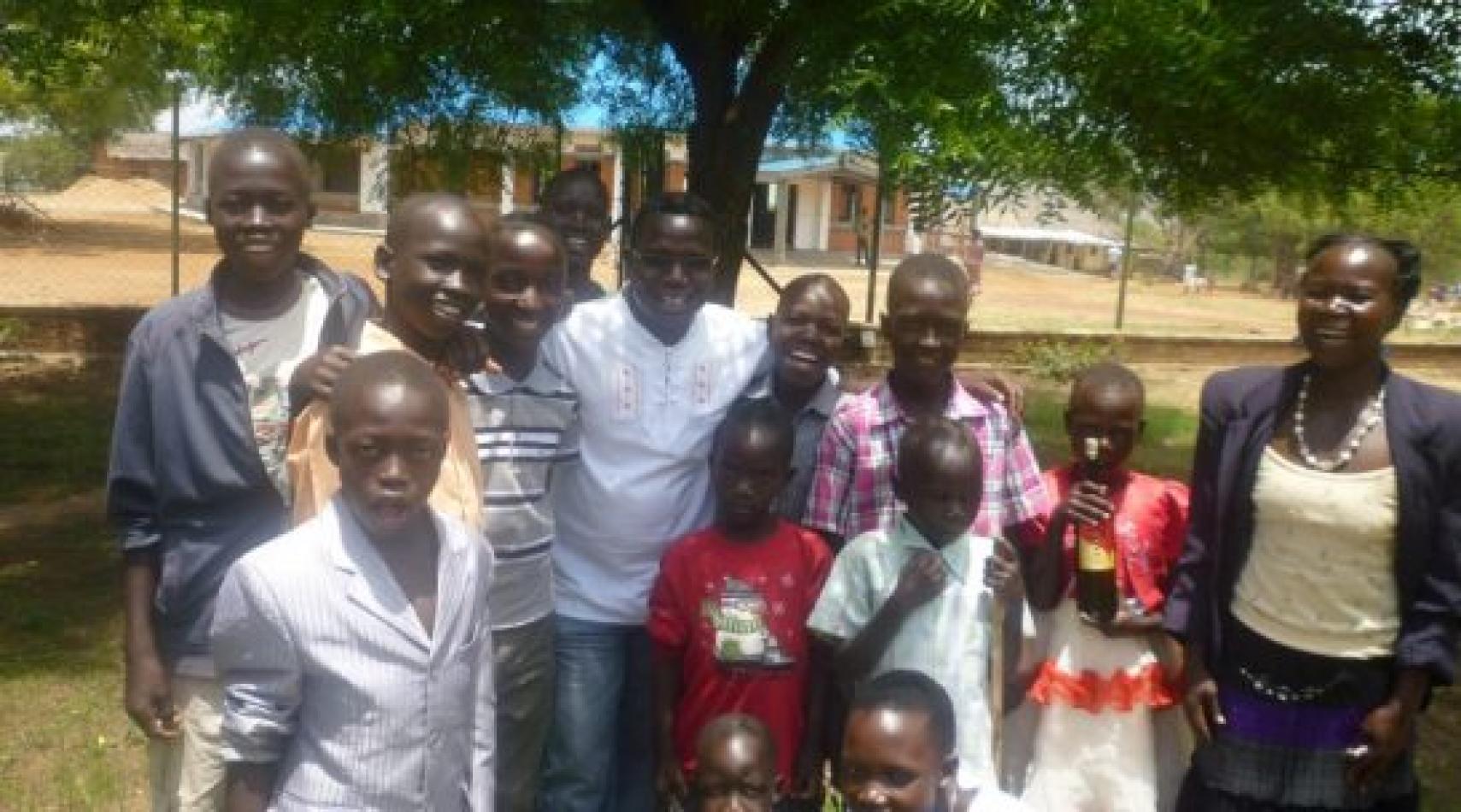Daniel Comboni
Missionários Combonianos
Área institucional
Outros links
Newsletter
Tuesday, August 14, 2018
My name is Fr. Philip Andruga Kenyi and I was born on 12th June 1977 in Juba, South Sudan. My father, Vitaliano Kenyi, was murdered at the age of 69 by unknown persons in 2011 in Juba two weeks to my priestly ordination. He was a great inspiration to me as a man who loved his family and sacrificed so much to provide for the family needs. My Mother, Lina Loria Kenyi is currently 59 years old. She is a simple woman with basic academic level. She is a member of the Catholic Action group in my home Parish.
Missionary Stories
Lord, what about me?
It is my mother’s active participation in the Church that inspired me and made me to love the Church and desire to serve it as a Catholic Priest. My parents have been married in the Church since thirty-eight years ago and they have been a great example for us.
My Call to a particular vocation within the Christian life
Scripture attests that, historically, God calls people through the events of their lives. The call is always very personal. And that is what I felt when “the call” came for me though I did not know what to do about it. I could not tell and did not know if God was calling me to this particular vocation, and at that time, I did not know the will of God. Additionally, I did not know how to respond to it in sincerity. As a young person, I had many confusing desires in me which needed to be made clear.
The big step towards my vocation was when I was invited to a Christian Youth leadership training camp organized by our Parish. During the meeting, I learned many important skills on how to be a Christian leader especially among the youth. I was asked by one of the priests if I would like to join the seminary so that I may become a priest like him. Interestingly, in my small group of sharing, was a diocesan seminarian and the way he conducted himself caught my attention and I admired it.
In the camp, there were some Comboni missionaries priests and Comboni sisters who also shared with us their experience as missionaries. What I admired in them was the joy in their faces when they were sharing their experience with us. They also invited anyone who was interested in joining them and at the end of the encounter, I found myself confused because I did not know what to do. I thought of joining the seminary or continuing with my studies and realize my dreams of becoming a lawyer.
It was not until the retreat of the youth groups that I told our parish priest of my intention of becoming a priest but, a religious priest. He was pleased with the idea and told me to follow my heart’s desire. After the encounter with the Parish Priest, I went to inform the members of my family about my decision and they were supportive though some of them were against it.
The funny thing in all this development of my vocation to religious life was that God did not tell me in clear terms that this was my vocation. There was no evident sign pointing to it. And as we know in the Old Testament, God spoke to Moses, to a people, to prophets, even to kings, urging them to turn to a new way of life, to conversion. Besides, in the Sacred Scripture, we meet with visions, angels, and messengers; then there are dreams and voices. And what about me?
In my case, God’s voice comes through the events of life through which I slowly discover love’s demands. God remains invisible and withdrawn. The first call I felt is the intuition, and it came as a surprise to me. I slowly discovered those hidden nooks and crannies where God loves me in a more special way than usual, disclosing His presence and love to me. I also felt it is a call based on faith in God who loves me and can do everything out of love for me. It is not something forthcoming in an interview or a conversation, but only through a slow and profound communication process between the spiritual guide and me.
The basis of our choice as a consecrated person
I think often, the call of God takes shape within us when persons, stirred out of their fatigue, see themselves confronted by events that tear them away from their indifference. Experiences lived out day by day and stored in memory, gradually accumulate into a collection of information from which to draw upon to make a career choice. Emotions lived through mark an individual. A number of experiences are required in order to make a reasonable choice, whether one wants to be a lawyer, teacher, a religious or a priest.
The process is one of imitation, a parental model. Religious life is the same. That religious persons become a familiar sight to children is important. Otherwise, how will the person take something unknown? Without the possibility of seeing a religious or a priest, how can one desire to be like them? Sometimes it is said that what counts is our “being” in the world. Some add that there ought to be no difference between religious and secular priests. That is true in certain situations, but that is not enough for fostering vocation to religious life. This “being” has to be made visible in the here and now, something brought about by significant gestures and words conveying a personal and communitarian identity. Thus, discretion alone is not enough. One has to see the religious and their community in action.
New People




